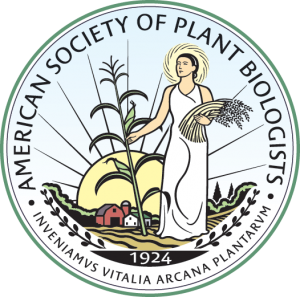Enid MacRobbie Corresponding Membership
This honor, initially given in 1932, provides life membership and Society publications to distinguished plant biologists from outside the United States. The honor is conferred by election on the annual ballot. The committee selects no more than three (3) candidates, and these are placed on the ballot for approval of corresponding membership by majority vote. The president notifies successful candidates of their election. Election of a corresponding member is to be considered each year, and held if warranted, provided the election will not increase the number of corresponding members beyond two (2) percent of the dues-paying membership. Membership is required for this award.

2023 Winner: Avraham Levy
Dr. Levy is a Professor of Plant and Environmental Sciences at the Weizmann Institute of Science, Israel. He has led a highly influential scientific career studying genome structure, stability, and change in plants and yeast. The main goal of his research is to understand the mechanisms involved in the evolution and plasticity of the plant genome. He is interested in exploring connections between epigenetic modifications and genome integrity. Currently his group is working on the contributions of DNA recombination, transposons, hybridization, and polyploidy to rapid genome evolution. Dr. Levy has also carried out impactful research on wheat genetics and transposons, which led to the publication of highly cited research papers. He is also a great mentor and role model for others in the community, having supervised large numbers of PhD and MSc trainees who are working in the biotechnology industry in Israel and worldwide. Dr. Levy has also provided remarkable leadership service to the Weizmann Institute; and he has served the scientific community in many capacities, including as a member of the editorial board of The Plant Cell and as also president of the Israeli Society of Genetics.

2023 Winner: Wataru Sakamoto
For 20 years, Dr. Sakamoto has been a professor at the Institute of Plant Science and Resources at Okayama University, Japan. He has made commensurate contributions to plant biology research and integrated many techniques into his work, including plant physiology, anatomy, genetics, and molecular biology. Dr. Sakamoto has a long record of contributions to the literature on chloroplast biology, particularly protein quality control. He has pioneered the characterization of variegation in leaves, work that led to the concept of chloroplast proteostasis. Additionally, Dr. Sakamoto’s studies on suppressors of leaf variegation demonstrated the importance of protein homeostasis in chloroplasts. His work is being extended to various aspects of chloroplast homeostasis through DNA maintenance and thylakoid remodeling. Dr. Sakamoto has published his research in high-impact journals, and, notably, 20% of his papers have been published in ASPB journals. Dr. Sakamoto has contributed to the international plant science community, particularly to ASPB and the Japanese Society of Plant Physiologists (JSPP). He served as the JSPP Secretary from 2002 to 2004 and Secretary General from 2014 to 2016. He also served as a Monitoring Editor for Plant Physiology for 10 years and is now the Editor-in-Chief of Plant and Cell Physiology.
Steffen Abel, Chair (2021-2024)
Jaswinder Singh, Past Winner (2019-2024)
Marilyn Anderson (2020-2024)
George Coupland (2020-2024)
Keiko Sugimoto (2020-2024)
Henri Batoko (2023-2027)
Sylvia Lee, Staff Liaison
